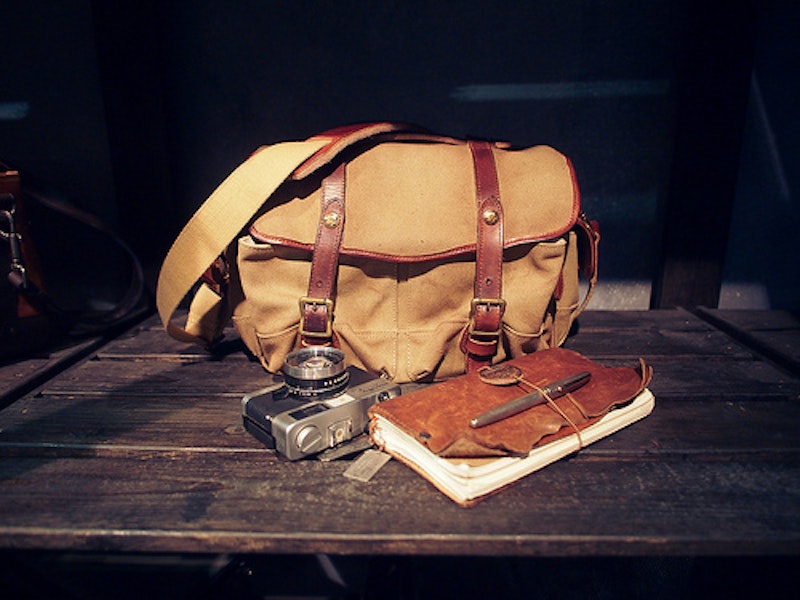I’ve noticed a peculiar division in the habitual recording of human experience. In times of joy, our instinct is to snap a photograph. When we’re sad, we write it down.
The latter condition makes journaling a bitter hobby. In one fashion or another, I’ve kept a journal since I was old enough to write. My first textual memoir was a Star Trek notebook with the dimensions of a playing deck, and I still remember the tiny thrill of scribbling out those second-grade thoughts. I entered flat remarks on schoolboy routine, and it’s where I confessed the pain of my first crush. I didn’t write about things that mattered; things mattered because I’d written about them.
Journaling helps to organize young consciousness, installing a retroactive skeleton of meaning in an otherwise shapeless phenomenology of sense perception, obedience, and reflex habit. To write something down, to record anything with words, implies that it has meaning. When human experience leaves words in its wake, those words survive to dignify the wandering invisibility they name. Journaling arises from the understanding that the glowing core of the human condition cannot be seen, heard, or touched. At most, life can be written about.
And so it makes sense that the written word carries its most vital currency in times of pain and loneliness, when words vindicate those raw coordinates of mortality that are much too gratefully parted with and much too quickly forgotten.
Photography serves a different purpose. The photograph is a monument. We take photographs based on the illusion that we’ll be able to take a morsel of the past forward in time with us, as though an artifact of personal history could help conjure the possibility of a gentler future. We hold on to photographs as evidence that we were, at some point in time, happy, washing ourselves in a derivative elation wrenched from the photograph’s conceit of cheated temporality.
But no moment can live up to the feeling one gets by looking back on that moment. The wedding pictures are sweeter than the wedding day, and the immanence of a moment is rendered transcendent only once it has been lost to the cruelly expanding cosmos. Time goes in only one direction, and the photograph cannot bypass that course; rather, its impact arises from our surrender to the unidirectional current.
Flipping through my journals, turning pages back decades, I’m faced with the record of a sad and disappointed person. But holding a photograph I see something different, an endless joy inhabiting fixed points of light. The pen and the lens affect both melancholy and gratitude, and remind us that the human space is wide enough for each.

